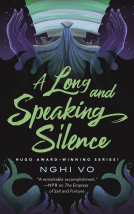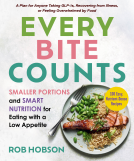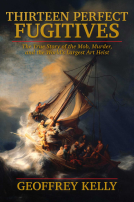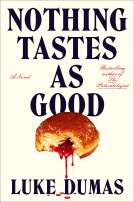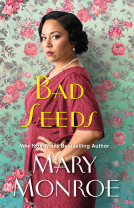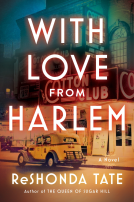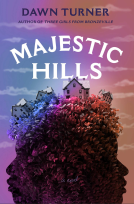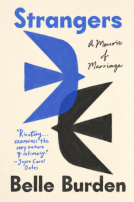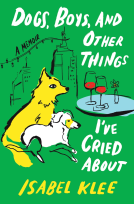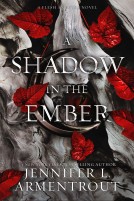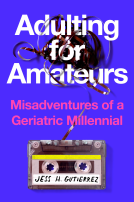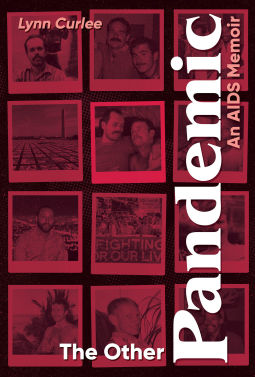
The Other Pandemic
An AIDS Memoir
by Lynn Curlee
This title was previously available on NetGalley and is now archived.
Send NetGalley books directly to your Kindle or Kindle app
1
To read on a Kindle or Kindle app, please add kindle@netgalley.com as an approved email address to receive files in your Amazon account. Click here for step-by-step instructions.
2
Also find your Kindle email address within your Amazon account, and enter it here.
Pub Date Jun 06 2023 | Archive Date Jun 06 2023
Charlesbridge | Charlesbridge Teen
Talking about this book? Use #TheOtherPandemic #NetGalley. More hashtag tips!
Description
Before COVID-19 made "pandemic" a household word in 2020, there was the AIDS pandemic of the 1980s and 1990s. Author Lynn Curlee explores the parallels and the difference as he recounts living in New York and Los Angeles when the disease silently took hold of the gay community. As the disease became a full-blown public health crisis, Curlee watched in horror at the devastating progression of HIV/AIDS, the staggering losses endured, and divisive politics and discrimination that cost many people their lives.
With honesty and heart, Curlee tells the stories of the many friends and loved ones that he lost to the disease, including his own life partner. LGBTQ+ rights and access to health care continues to be threatened today. The Other Pandemic is a stark and strong reminder of how history speaks to the present, and this window to the past is a valuable tool for understanding our current cultural landscape.
“HEARTBREAKING! This memoir of the AIDS plague is a powerful reminder to those of us who miraculously lived through it — and a valuable eye-opener for younger generations who can never allow this to happen again. With the COVID pandemic on everyone’s radar, there couldn’t be a more teachable moment. Author Lynn Curlee grabs this pulpit by the throat and fearlessly makes the case that we must never forget.”
— Sam Irvin, filmmaker and author
"Reading The Other Pandemic was a very personal journey for me. I lost my stepfather to AIDS in 1993 when he was just 44 years old. The way Lynn shares his own life experiences a gay man living during this historic time of loss and perseverance is so insightful, and incredibly important to share with those who were not there firsthand to experience it."
— Carol Bennett, daughter of Tim Bennett, a major character in THE OTHER PANDEMIC
"Reading The Other Pandemic: An AIDS Memoir is akin to settling in with a dear, dear friend for a long-overdue catchup. Lynn Curlee’s effortless and evocative prose is much more than a poignant account of a not-distant-past epidemic that galvanized the LGBTQ+ community. It is a deeply personal and brave story of chosen families, political deafness, and hard-fought resolve. Curlee both broke my heart and mended it."
—Jeffrey Dale Lofton, author of Red Clay Suzie
"The Other Pandemic is a poignant and raw examination of the AIDS crisis that highlights how much the past shapes our present. Lynn Curlee has accomplished something beautiful here—I could not put it down. I am grateful he chose to share his loved ones with the world."
— Leo Rocha, Journalist and GLAAD "20 under 20" honoree
Available Editions
| EDITION | Other Format |
| ISBN | 9781623543501 |
| PRICE | $19.99 (USD) |
| PAGES | 176 |
Available on NetGalley
Average rating from 25 members
Featured Reviews
Overall Rating: 4.5/5
Plot/Synopsis: We all know how history repeats itself. We also know that humans tend to have shockingly short collective memories. You see, we’ve forgotten that the Covid-19 outbreak was not our first pandemic. It’s not even the first pandemic to happen in this lifetime. We’ve seen a virus this catastrophic before, but because of time and prejudice and advances in treatment, we’ve forgotten all about it. Lynn Curlee is here to remind us of an important lesson with his devastating but timely memoir The Other Pandemic.
The sudden emergence and major loss of life caused by the AIDS virus in the 1980s rivals the shock and dismay felt in the early months of Covid-19, with one notable exception: at first, HIV seemed to only infect a single, small and already marginalized population. And because a majority of Americans at the time preferred to pretend these people didn’t exist– or worse, didn’t care– the massive, collective effort to find a cure was not set in motion and an entire generation of young gay men with hopes and dreams and flourishing careers was lost. Gone in an instant before they’d really even had a chance to live.
In his memoir, Lynn Curlee draws parallels between the frightening first decade of the AIDS pandemic and the early months of Covid-19, when the questions were endless and the bad news far outweighed the good, and unlike Covid, AIDS was 100% fatal for many years. Few people understand what it’s like to have past decisions come back to haunt you in a way that is both irreversible and completely unfair, or that a medical diagnosis could result in an automatic death sentence. What’s it like to live in a world with so much death you stop counting the number of friends and loved ones lost?
Lynn Curlee lived through those early years of the AIDS pandemic in New York and LA, two epicenters of infection. He knows what AIDS is like all too well, and he shares his experience and memories to remind us that all deadly diseases have a human face, that the people who suffered were loved and valued and worthy of respect, and it is for them that the survivors carry on living and fighting to prevent the worst parts of history from repeating itself.
First Take: I read this book in one day, it was that captivating! As a suburban kid of the 90s, I was spared most of the horror of living through the early years of this terrible illness. By the time I came of age and entered the healthcare profession, HIV/AIDS was no longer a death sentence, but a chronic illness that could be managed well with medications. This memoir is a chilling reminder of what this virus can do and how vulnerable we humans really are, and that collective inaction can lead to the literal disappearance of entire communities. I was immediately gripped by Lynn Curlee’s story, which felt both deeply personal but also educational (in a really good way). It is powerfully moving and sad– how could an AIDS memoir not be– but it is also a love story. It is because of this equal attention to love and loss that I found I didn’t need as many tissues as I thought I would. It’s the kind of book that leaves you sitting in the dark with your feelings for a while because it’s just so much, the kind of story where you find that the precious lives lived within the pages will never truly leave you, both because they are memorable in their heartbreak and the terrible understanding that these people really lived and died.
Praises: Picking up a memoir about the early days of AIDS is a daunting task. If you are interested in this subject matter, you probably already know a bit about it, and likely none of what you know is happy or good. So I was prepared to cry. A lot. And as much as this book is a story of the horror of that time, it is also a tale of one man’s love for his friends and family, his partner, and his way of life. And that love is what shines through the most in this book. I got the impression that Lynn Curlee just wanted to introduce us to all the awesome people in his world, whom we’ll never get to know in person because they were taken from this earth well before their time. I adored how the book included so many pictures of Curlee’s friends and life, the photos made this sense of knowing possible! How could I be sad in the face of so much love? Ok, I totally was, but in a different, less depressing way than I expected. I also appreciated how Curlee took the time to discuss what the culture was like around this time, both within the gay community and in mainstream society. It provides some context for understanding how the HIV virus was able to spread so effectively at that particular moment in time, and why the response to the crisis was so maddeningly slow. In all, this is a great introduction and objective look into the early years of the AIDS pandemic through the lens of one man’s life.
Critiques: Keep in mind that this is a memoir, not a history book (though it does contain a lot of helpful history). As such, the perspective and focus of the historical events and timelines mentioned within the pages relate primarily to the gay community and how it was affected by and responded to the early AIDS crisis, since the author is a member of that community. For more information on the contributions by or perspectives of, say, the lesbian or trans communities– or even mainstream society– you’ll want to look elsewhere.
Prose: We learn in the book that the author is also a writer of several children’s books, and it makes sense in that it seems to me that he might have written this book with his usual audience in the back of his mind. That’s not to say that his prose is juvenile, not at all! Rather, it is written in a way that feels appropriate and relatable for everyone, including younger people. I could easily see teenage me picking up this book and getting just as much out of it as I do now.
 Reviewer 1111950
Reviewer 1111950
A very great read about the AIDS / HIV virus in America. Lynn Curler found a great way to combine his personal experiences and stories as a gay man, but also manages to include scientific information and facts.
It was very sad to read about all the people he has lost to this virus over the past years, but a great way to pay tribute to his friends.
I thought this book was very informative and I enjoyed the personal note - I just wished there’s would’ve been more real life events and a little less historic / scientific facts.
I found the story really interesting. It is was a far departure from what I normally read but to experience someone else’s life experiences.
I will say that while I am glad to have gotten an arc of it. I felt that parts were over simplified but it does make me more curious and that is the point of the journey.
Very good book at a man that dealt with AIDS via his friends and/or lovers. I thought the author was very honest and gave it to you straight. This book is an eye-opener on what people deal with either having or knowing someone with this disease. Thanks to Netgalley, the author and the publisher for the ARC of this book in return for my honest review. Receiving the book in this manner had no bearing on this review.
An extraordinary book - a book particularly focused on the audience of teenagers but should be read by everyone. It is a story of the other pandemic (AIDS) as well as LGBTQ+ history that unfortunately has been largely forgotten and I encounter young people who take for granted the rights they have today and also are not concerned about AIDS. This book is the author's memoir told in a fact-based and personal heart-felt manner. This style is extremely effective at both describing what happened and how it felt in the 1960's growing up gay through the 1980's and early 1990's to present day. History must be taught so rights that earlier generations fought so persistently and courageously for do not get taken away. This is also a very moving story of love and loss -- of friends, lovers, and families. There are personal photos throughout and at the end photos of those the author lost with brief bios -- I could barely read it through my tears. Thank you so much Lynn Curlee for sharing your story with the next generation so we will never forget. I highly recommend this book.
 Reviewer 1077407
Reviewer 1077407
This was a very powerful memoir of the author's personal account of the AIDS crisis. This book includes photographs, memorial pages, art, and historical highlights that help paint a broad and personalized picture of the crisis. I think this book does a beautiful job of honoring the people he lost during that time as well. For such a short book, he makes a point to tell us about each person before they became sick.
I will say the beginning of this book was a bit off for me. When the author talks about growing up in the sixties with segregation and the Vietnam War, I was a bit confused as to what audience this book was written for. When I later found out this author had written mainly children's books, it made sense that the beginning felt a bit like I was being spoken down to.
I feel honored to get to experience reading this book pre-publication. Lynn Curlee's memoir about coming into his own as a queer person during the AIDS epidemic was heartbreaking to read, especially as he compares it to current teens growing up surrounded by COVID.
As an avid enjoyer of queer history, I have found it necessary, though incredibly difficult, to learn about the AIDS crisis. I think one of the best ways to do so is to read, watch, or listen to the stories of those who lived through it, and this book is the perfect example of why. I learned, yes, but I also got to feel (for however brief the book is) connected to a queer elder who paved the way for people like me stepping into our queerness in this post-AIDS world. I have never known the fear that I would get a deadly disease, unknowingly spread it to a partner, and eventually wither away while the general public watched me with disgust. I am lucky, but so many were not. Reading about Curlee's friends and partners who one by one succumbed to a virus we knew very little about reminded me of how much divides my generation and the previous one, but it also fostered a sense of community between them and me. I don't know AIDS on a personal level, but I do know COVID. I became an adult during the pandemic and it changed every bit of me. I know what it is like to have my world altered indefinitely because of a disease the government would rather make a political issue than a public health one.
This memoir never expects its audience to feel at fault for anything that happened to the people it talks about -- it's aimed at teens. But it expects them to slot the stories of the queer men who died into their outlook on the pandemic. Yes, AIDS caused an entire subset of people to live in fear for over a decade, but those people emerged from those hardships stronger than ever and even more willing to fight for the right to survive. I was sad reading this, but I was also uplifted. Encouraged to make my voice heard. To refuse to let those in power take away from the life I am supposed to be allowed to live. It doesn't shy away from the tragedy of what happened to queer people in the 1980s, but it also shows the joy those people experienced. This is a story of perseverance, of people getting beat down and finding a way to get back up again and dance and sing and fight for what is right.
I think queer kids growing up with access to books like this will realize how important the fight we've been fighting is. We've been going at it for so long, and it's exhausting, but if we keep it up no child will ever grow up afraid that they will never get to live openly with the person they love. For too long we have lived quietly, let our anger simmer beneath our skin, but this book is a clear example of the good that can come from letting ourselves be angry. Things have changed. Things will continue to change. And artists like Lynn Curlee will tell the stories of those who can't tell them anymore.
The use of Covid-19 as a framing device - a way to make this story more real or more accessible to younger audiences - was such a smart choice for this memoir. The book is a good bird’s eye view of the epidemic for younger audiences while being a poignant account of a very personal relationship. I do think it glossed over a lot of the much uglier, grittier realities of the AIDS epidemic - but that could also be my own difficulty putting aside my prior knowledge since AIDS activist art is my research area of study.
I did appreciate that the author often acknowledges that he, his partner, his loved ones, friends, etc. did have access to a lot of resources that so many did not have during that time. At one point he mentions that the epidemic “didn’t seem to effect [their] daily lives,” and that kind of statement could come off a little callous if it wasn’t couched in those acknowledgments.
One of my only real criticisms of the book is that it seems like the author does dance a few times with a bit of a sec shaming view of the epidemic. It isn’t a pervasive theme by any stretch of the imagination, but just left a little bit of a bad taste in my mouth.
Overall, this was a very touching memoir written in a very accessible way for younger audiences who may not have any real grasp of how far-reaching the AIDS epidemic was in the gay community.
 Selena R, Reviewer
Selena R, Reviewer
This book was amazingly written. As a younger queer person I know about the AIDS pandemic. But hearing such a personal account makes a complete difference. There were so many lesser known details I hadn't known. This is an amazing book that draws much needed parallels. It was so awesome to see what an aspect of queer life was like back then. At the same time it was crushing to see what was taken.
This book caught my eye because of the Covid-19 framing device, it served as a nice point of reference for a younger audience. Which transitions me into what is my biggest issue with this book, it feels like it is written for a younger audience than it's being marketed toward. The author's experience as a children's author shines through in that it feels like the audience he had in the back of his mind while writing was a juvenile crowd as opposed to young adult. As someone outside of the target age group, I'm hoping that's just my own age showing, but there were times that I felt talked down to.
Maybe that's a good thing though in some ways, as the community continues to cycle through the same arguments it's been having since the 60s as far as respectability politics and the correct way to be gay. It serves as a reminder of the older generation that's been lost and what needs to continue to be fought for. As a memoir, it provides an intimate view of what it was like to live at the time. It's also a singular view. One that can and does leave out some of the other members of the community who were also fighting during this time, and who were also affected by the pandemic. The author is aware of the privilege he had and what it meant during the time, which helps keeps it from feeling totally out of touch. I wouldn't go so far as to say it was sanitizing what was a brutal time in Queer history, but in keeping things palatable for a young audience I do think some things were left out. Again though, it's a memoir not a history so it's a look into a personal perspective of the time.
One thing I liked was that it covered the before and after the crisis. It helped keep things from feeling hopeless, as a story about the AIDS pandemic and a foil for Covid it's nice to see that there is a light at the end of the tunnel which as the author can attest can be hard to see when you're in the middle of the pandemic. A worthwhile read for sure.
I remember when AIDS petrified everyone. When I started to read this book, it got me thinking about how we went from mass panic to a point where being able to manage HIV is a possibility.
This book reminded me of the crazy that was those years and, of course, we now can say that we lived through two pandemics. Never thought of AIDS has a pandemic, but the gift of this book is that it make me strop and questions myself.
Well written and well researched.
This memoir opens with using the recent COVID-19 pandemic to introduce young adult readers to the AIDS pandemic before diving into the Curlee's memoir. It is an effective opening because, as it addresses the difference in the two pandemics, it establishes that many things in the memoir will be different, too -- how people grew up, how gay people were seen and treated, how technology and access to information were more limited. The narrative voice used throughout is reflective, but also guides younger readers less familiar with the history of this pandemic through major ideas and events. The book features an excellent bibliography in addition to photographs and the author's primary experiences. This book would make an excellent addition to school or public libraries, as well as personal ones.
Thank you to Charlesbridge and Netgalley for the ARC
Though very short with about 165 pages, 'The Other Pandemic' packed an emotional punch. This book is Lynn Curlee's memoir about the devastating years of the AIDS pandemic in New York, and it portrays the horror of the slowly unfurling epidemic and the grief of losing so many you love.
With a lot of love and admiration for those he lost, Curlee takes the reader through his personal account of those horrifying years for gay men up until the loss of his life partner.
Even though this is hardly the first time I read about the history of AIDS, I think it is of the utmost importance to spend time with such personal accounts because it's easy to think of this pandemic in an abstract sense, as something of the last century or historical. Curlee reminds us what it meant to live through those not-so-long-ago years and survive.
The Other Pandemic by Lynn Curlee, is a beautifully written first hand account of the AIDS pandemic for young and new adults. Curlee talks about the feelings of the early days of the pandemic before anyone in his circle contracted the virus. He details the information and misinformation that flowed through the media. The tension as it circled ever closer to him until members of his chosen family, his circle of friends started getting sick and dying. He lays out the activism, the staying at bed sides, the seeing friends for the last time, all juxtaposed against his life and work and loves.
The Other Pandemic is beautifully written, filled with photos from the author’s life of friends and events witnessed. The stories are concise, with an easy to follow timeline, and uses language that is understandable by a wide range of audience. In the end he compares the ongoing AIDS pandemic with the COVID pandemic as he was living in lock down. It gives the book a powerful ending that makes the AIDS pandemic not only understandable, but more relevant to the younger generations currently coming of age.
The first book I finished on my holiday was this ARC of The Other Pandemic: An AIDS Memoir. It’s a great introductory book on the AIDS pandemic, told through the author’s personal experiences as a gay man living in New York and LA during those years. The goal: to teach those for whom COVID19 was their first pandemic about the AIDS crisis.
I already had a basic understanding of this period of queer history, but I still learned a lot from this book. The way it intertwines general information with a personal story brings everything closer than just accounting the facts would have. The writing is engaging and feels right for a young/new adult audience.
This is one of those books that feels so difficult to review because, while I found it fascinating, it was a very difficult and sad read, but sometimes those are the most important books. I can see this becoming a staple of uni modules on intersectionality alongside the likes of Bersani’s Is The Rectum a Grave?
Right now, in the wake of COVID, this feels like such an important text on intersectionality and the ways governments will happily throw marginalised groups under the bus as collateral damage, whether that be queer people or disabled people.
 Reviewer 1128281
Reviewer 1128281
A gorgeous account of living through the AIDS epidemic. This memoir chronicles Lynn's life as a gay man who witnessed over 40 friends die from AIDS and HIV. It details his friends' and lovers' lives, along with pictures, all of which made me tear up. As a young queer person, I am devastated I haven't been taught these stories of incredible lives cut short. I intend on sharing this with my gender and sexuality alliance on campus as a "must-read." I also loved the ending author's note, comparing the epidemic to COVID. The title of this book is incredible on that front.
I absolutely loved the formatting, it reminded me of the old nonfiction books I used to read as a kid which made it so digestible. The only hiccup I had was keeping track of names, but when that became a huge issue, there was a helpful index of names at the beginning of the book with a short explanation of who everyone was. I received a copy of this through NetGalley and am providing my honest review. Thank you to NetGalley and Charlesbridge Teen for the copy!
What an important book‼️
I learned so much from Lynn Curlee’s candid stories put in historical context of a time I admittedly knew little about prior to reading this book. I especially appreciate how accessible this will be for young people 👏 Broke my heart, but also renewed my hope in & gratitude for caregivers & care providers.
I appreciate NetGalley & Charlesbridge Teen for providing me access to this ARC that I couldn’t put down! Since its release I have purchased for schools I work with in my technology coordinator role.
Readers who liked this book also liked:
ReShonda Tate
General Fiction (Adult), Historical Fiction, Multicultural Interest
Isabel Klee
Biographies & Memoirs, Nonfiction (Adult), Travel
Anne Taintor
Entertainment & Pop Culture, Health, Mind & Body, Humor & Satire
